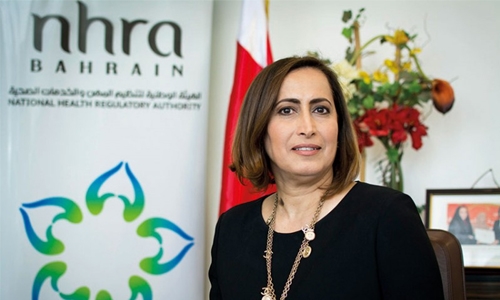NHRA accreditation process to ensure quality health services
Sixteen of 20 hospitals in the Kingdom have been accredited by the National Health Regulatory Authority (NHRA) in the past one year, it was revealed. The accreditation initiative by the NHRA aims to ensure quality healthcare at hospitals and medical facilities. The process began in 2017 and large majority of the hospitals have already been covered, according to NHRA CEO Mariam Al Jalahma.
Under the initiative, healthcare facilities undergoes a comprehensive assessment of all services provided by them, ranging from governance and medical care to patient and building safety, infection control, quality and other criteria that impact patient safety and quality. Successful applicants are awarded accreditation for three years. In addition, an annual self-assessment report should be submitted by the healthcare facility showing the facility’s progress and achievements.
The NHRA also conducts annual follow-up support visits to ensure effective implementation of planned activities, as well as to ensure continuous compliance of the achieved standards. Based on the accreditation awarded, the facilities will be categorised by NHRA into one of the following: Diamond: For facilities that achieve 95 per cent or more of the accreditation standards; Platinum: For facilities that achieve between 90pc and 94pc of the accreditation standards; Gold: For facilities that achieve between 80pc and 89pc of the accreditation standards; Silver: For facilities that achieve between 70pc and 79pc of the accreditation standards.
According to the NHRA, the accreditation provides an on-going monitoring and evaluation system, which complements the licensing process, as it will be mandatory for a licence to remain in operation. “We now have this accreditation programme, where all hospitals in Bahrain are following the same standards. We accredit hospitals based on those standards starting from the governance, leadership, patient care to pharmacy management, safety management and infection control.
Related Posts

